Gambling disorder: 'It took me to save Peter Shilton'
- Published
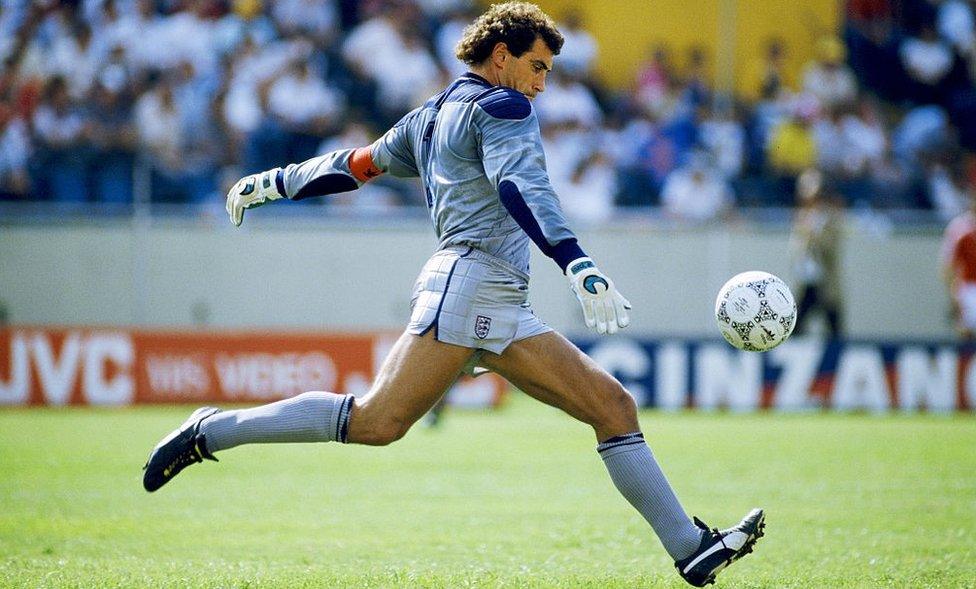
Peter Shilton, now aged 72, had a playing career spanning three decades
As England's most-capped player, goalkeeper Peter Shilton had the world at his feet. Off the pitch, he was in the grip of a gambling addiction his entire adult life - until his wife became his recovery. In her own words, Steph Shilton describes life with a gambling addict, and how she is determined to help others like her.

It was soon after we got together, in 2012, that I noticed his suspicious behaviour. He would go out of the room to use his phone; he was quite secretive.
I thought there was another woman. If you live with a gambling addict you feel there is a third party involved in your relationship.
On his phone, I saw the same number, over and over again. It was for a betting company.
'Something was very wrong'
I thought he was being a gentleman and not gambling in front of me, and that it was just a little hobby.
One night, I woke up and he wasn't in bed. He was on his laptop and on the screen was a tote [betting form]. It was the middle of the night and he was looking at betting on a horse race in Australia. Of course, he could gamble on any race, all over the world, at any time.
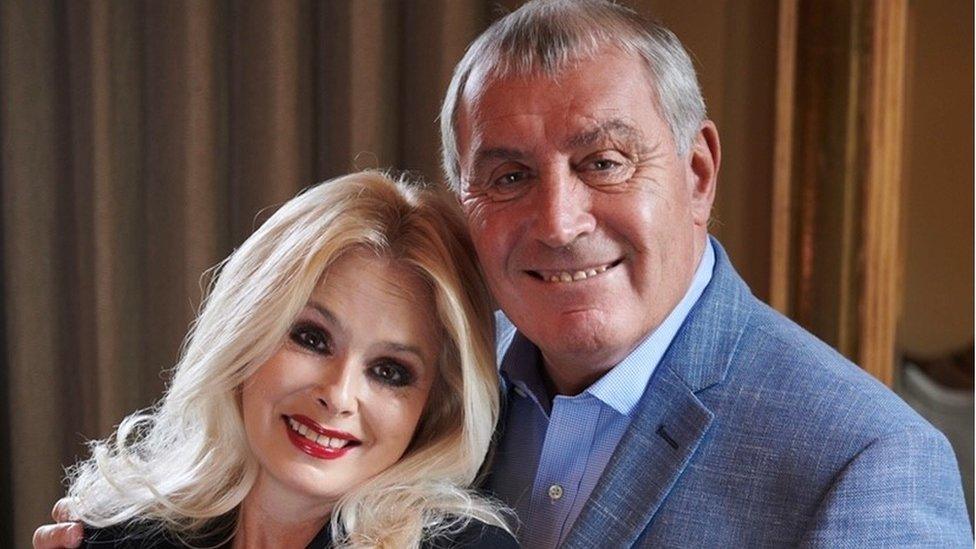
Steph said she thought there was a "third party" in her relationship with Peter Shilton, due to his secretive behaviour
That's when it hit me that it's not a hobby, that something was very wrong. I knew he had an addiction.
I tried to talk to him. I'd worked a long time in the NHS and I had seen addicts and people going through withdrawal. I knew not to put pressure on him.
He was very defensive; he was in denial. He said it was just something he did to unwind. It was always horse-racing, for him. It was a buzz for him. He knew managers and players who owned horses, it was part of the culture.
People have this assumption that gambling addicts are down-and-outs; it's often highly astute, very intelligent, very professional people. You can't spot a gambler, and that makes it extremely difficult to get through to them. They hide it. I was finding it difficult as a loved one, living with that.
He had been a gambler all his adult life, since the age of 15, so for 45 years.
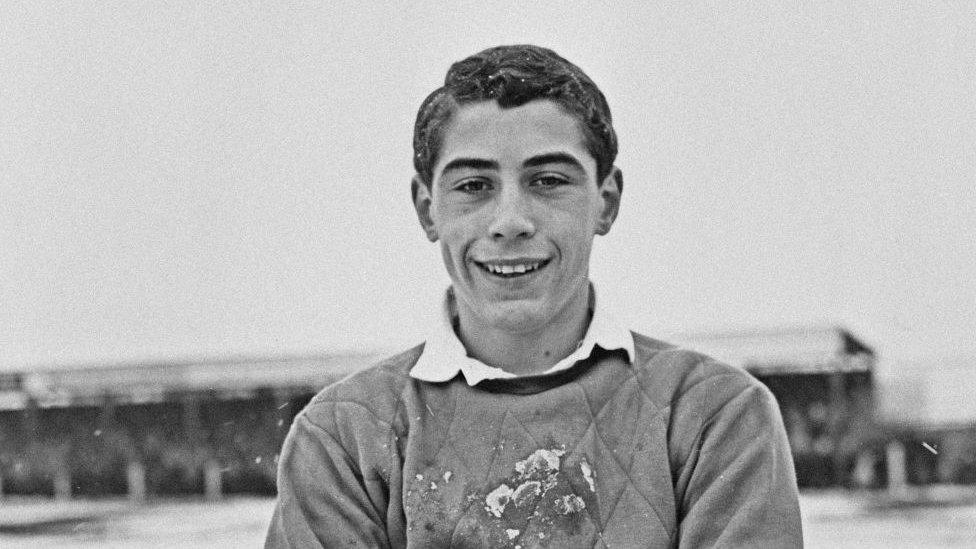
Peter Shilton, pictured aged 15, when he was part of the English School's Football Association team
He proposed to me and wanted to take me to Barbados and get married. I would say to him, 'you are a gambler, I can't marry you. I am too worried that you are too trapped in it.'
But I never gave him an ultimatum.
I kept my finances separate. That's a piece of advice I tell loved ones [of gambling addicts] - keep your financial independence, and never lend money.
I noticed that whenever he got his bank statement he would rip it up and burn it.
'Broke my heart'
Then his bank statement arrived in the post while he was working away. I wanted to see how much he was gambling. I opened it and there were pages and pages of his money going to the gambling company BetFair- £18,000 in a month.
It was gobsmacking. I was shocked to the core. I thought 'oh my god, he is so ill'. It broke my heart.
He was absolutely livid with me. I said 'you have got an illness; you have an addiction and you need help, and I am here to help you'.
Then, I had a miscarriage. He was amazing. He didn't gamble, he nursed me and I did think 'he's going to give this up for me'.
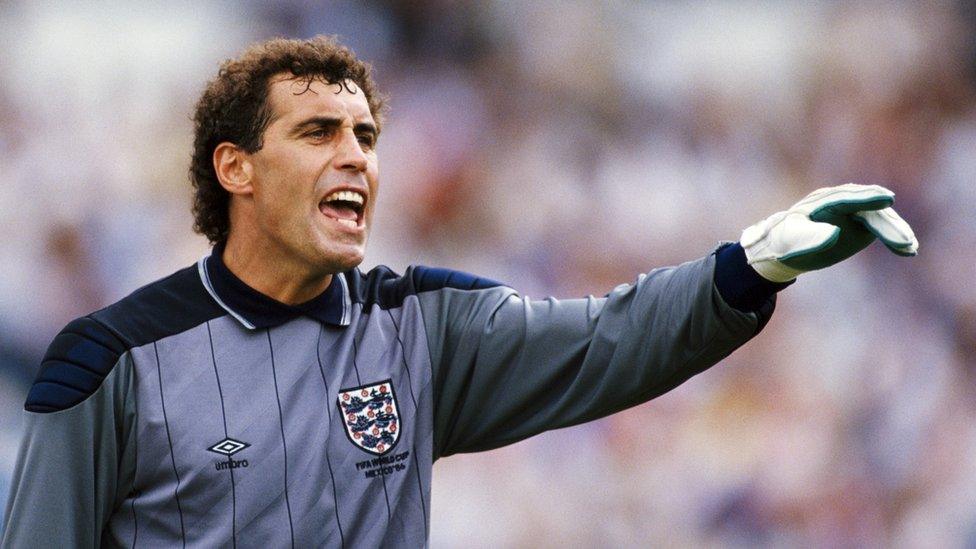
Peter Shilton had maintained a career in international football while in the grip of a decades-long gambling addiction
He went back into it but I think he changed, we had lost a baby which we would have wanted and I think the loss made him worry that he was going to lose me.
I think he was beginning to realise he had a serious problem, that he wasn't going to get the wedding or the trips to Barbados.
Rather than rant and rave and stomp my feet, I worked at it very gradually.
I was really scared for his wellbeing. He was going down, he was so deep in it, and he looked awful.
In our relationship, we would normally have such fun but he was getting withdrawn.
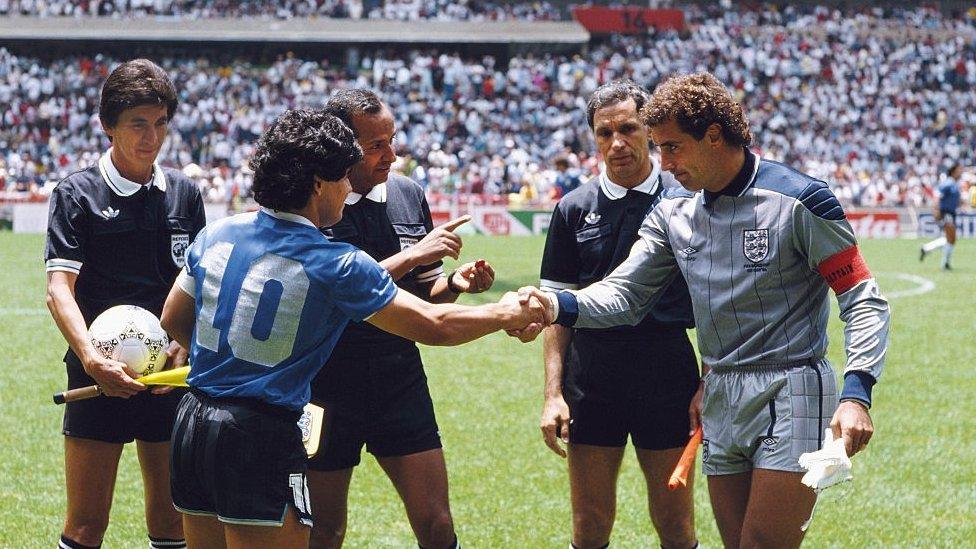
He faced off against some of the greatest players in the history of football, including Diego Maradona of Argentina
One Sunday he had disappeared upstairs. I could hear him on the phone, trying to get some money for a job he had done. I said, 'I am going to move in the spare bedroom, I need to clear my head.'
In the morning he looked horrendous, He hadn't slept.
'It is so lonely'
He said to me 'I know I've got a problem, I'm going to quit, but I'm going to need you do it with me'.
We threw our arms around each other. It was one of the best moments of my life.
I gave up my job to help him. He went through full-blown withdrawal.
The first week he still doesn't remember. He couldn't sleep; he had to start a new life.
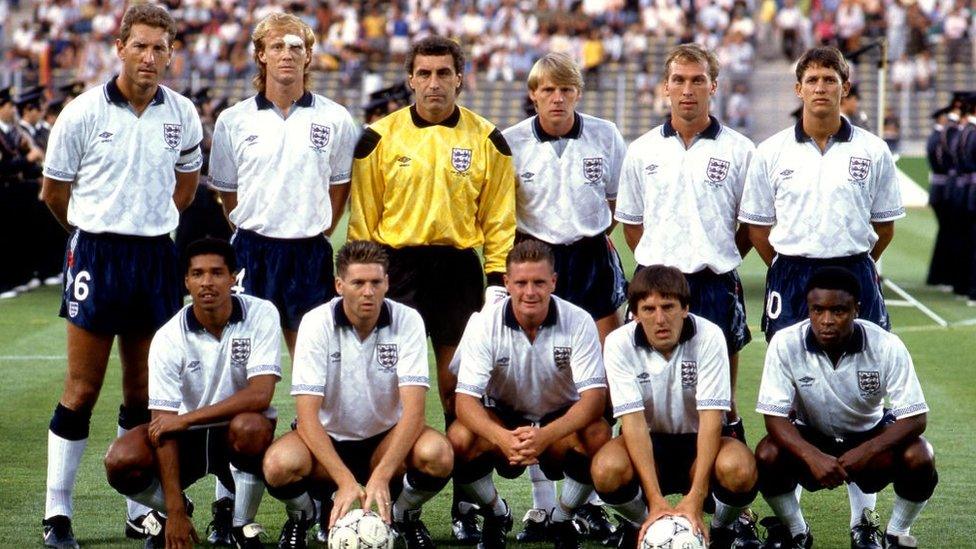
With the England team ahead of the semi-final with West Germany in the 1990 World Cup
It was a daily battle trying to keep him focused on something different, to keep him calm. He was yearning for a bet. In three months it started to subside. He got into golf. We went for beach walks.
We got through it on our own, together. I had contacted Betfair and asked them to help, and they didn't do anything at all, not even put limits on his account.
All the time I was trying to deal with my own emotions. It is so lonely.
When his dad died, I worried that it would push him back. I did have to work through my worries and anxieties and trust issues.
Five years after he quit, we started hearing about youngsters who were taking their own lives over gambling.
I told Peter he had to do something; his voice would be huge. He was very emotional and said, 'That's it, I've got to try and save lives'.
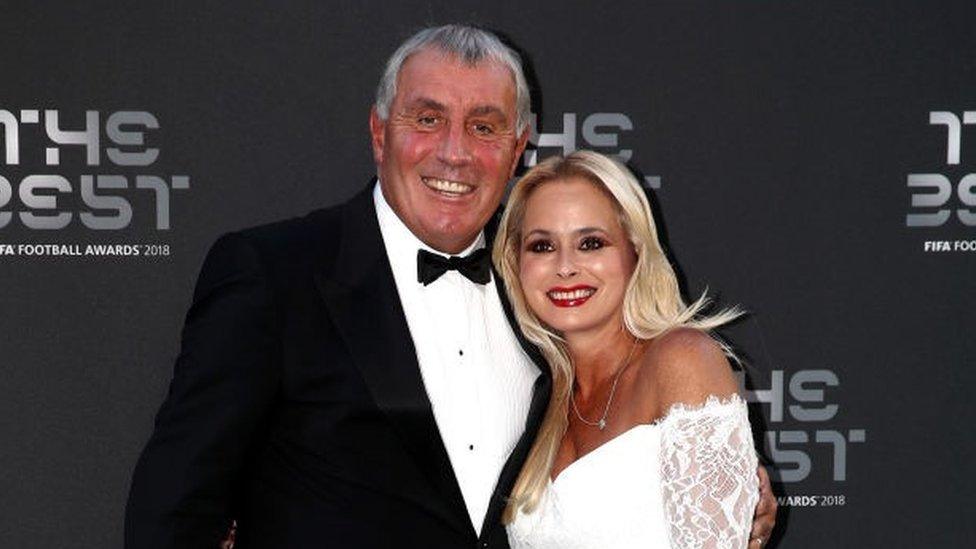
Peter and Steph at an awards ceremony in 2018, when he had recovered from his addiction but was yet to tell the world
It took a lot of guts. We did an interview [in January 2020] to raise awareness and the next morning we had messages from addicts and loved ones.
I was in tears. There were addicts who, because of Peter, were going to get help. Pete loves it, and obviously still works to raise awareness.
But I realised nothing was being done for loved ones - the loved ones are just as much the victims as the addicts and it's being ignored. I was his recovery.
I did a diploma to become a therapist and spoke to ARA (Addiction Recovery Agency), external, who had some jobs coming up.
I've been with them since April, as an ambassador and counsellor, working on their six to 10 project, external. It puts family and friends at the centre of care; six to 10 being the number of people affected by one person gambling.
It's exactly what's needed - not just the emotional side of it but the financial issues. There are people who are angry, parents who want to tell off their kids for getting addicted and you have to explain, it's not their fault, this is an illness. It's no different to drugs.
More support is needed through the recovery to give them the best chance to carry on through and not go back.
'There is help'
To anyone worried about their loved one I'd say if you've got that gut feeling, go with it. If you've got that suspicion, ask.
You've got to be strong to come through it all, but there is help.
When we look back now, we think, 'we are amazing, did we really go through all that?' It's an accomplishment for both of us.
He said this is the happiest he has ever been in his personal life, and when he recovered I could see the peace of mind he had. He looked 10 years younger and was enjoying life.
That was seven-and-a-half years ago.
I think it's ironic that he was one of the greatest goalkeepers in the world and it was me, a little Essex girl, who managed to save a part of him.
Betfair said it had changed its policies since Shilton's recovery, and in such circumstances now would suspend an account and impose an exclusion order if there were concerns a customer was not in control of their gambling.
If you have been affected by the issues raised in this article help and advice is available here.
As told to Laura Devlin